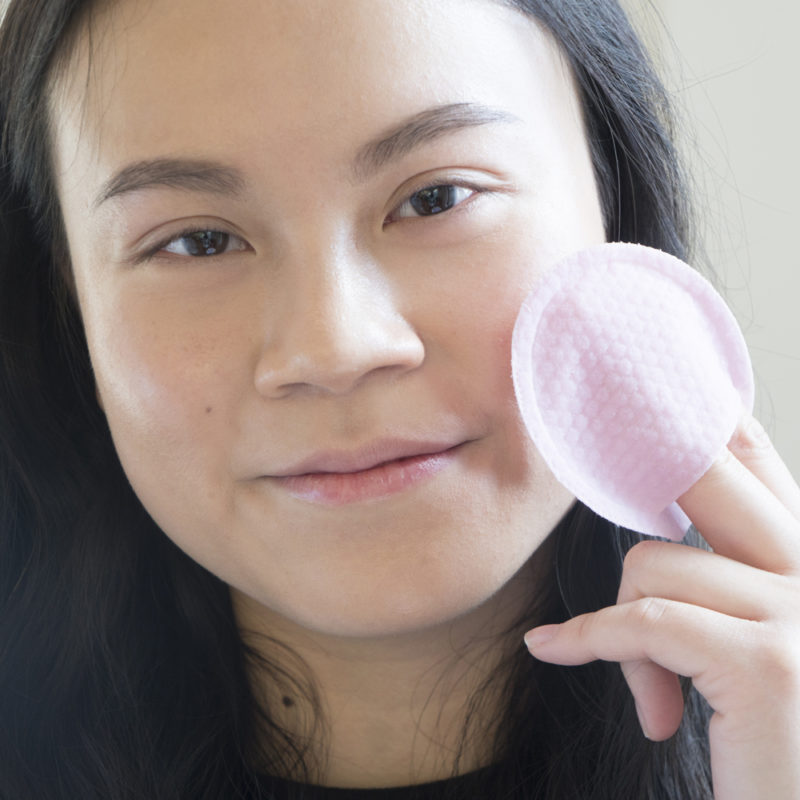Have you ever felt a skin care product tingle? Keep reading to find out whether that’s a good or bad thing.
If you’re suffering from acne, you may have come to the conclusion that any stinging or burning upon application means your product is actually working. I used to be right there with you. I’ve waxed poetry on my love of chemical exfoliants before and the glorious sting upon application, which for some reason convinced me that my products were actually working.
But this kind of mentality creates a slippery slope in our relationship to skin care because, newsflash: Your products shouldn’t actually hurt upon application. This is not to say that certain ones shouldn’t tingle (retinoids and AHA/BHAs might involve some tingling), but you should be able to tell the difference between what’s good and what’s not. Here’s our guide on what should feel normal and what should have you thinking twice about that new product.
Should acne products tingle?
When you’re trying to treat acne (which can be extremely frustrating) your goal should be to eliminate the blemishes you have and to prevent new ones from popping up. What we tend to forget during this process (as we slather on tons of acne treatments) is that it’s important to also respect your skin barrier as well.
Using harsh acne medications that continuously sting upon application can damage your barrier, which is the one thing that protects you from acne in the first place. Joshua Zeichner the director of cosmetic and clinical research in dermatology at Mount Sinai Hospital, says: “While many patients feel they need to experience some sort of dryness [or stinging] for a product to work, that is not the case. In fact, I try to avoid dryness, redness, and irritation altogether.”
But what about products that naturally cause a tingle?
There are certain products that when you first start to use them may tingle upon application. These include salicylic acid, benzoyl peroxide, retinol and even high concentrations of vitamin C, like what’s found in the Cosrx Triple C Lightning Liquid. A slight tingle is completely normal as your skin acclimates to these products.
But your skin shouldn’t sting every time you use these products—this should only be during the introduction phase. The actual tingling should also be short-lived and last only about two weeks, at most. “The sensation is generally mild and resolves without any skin issues,” says Zeichner. “If you develop significant burning or stinging or if the skin is starting to turn red, it may be an allergy or an irritation reaction and the product should be washed off right away.”
So how do I use exfoliators correctly without damaging my skin?
Start slow. I remember when I first started using chemical exfoliators my skin would be so smooth and basically poreless the next day, so instead of slowly introducing my skin to them, I took a “more is more” approach and slathered my skin almost every day. Guess what? My skin became quickly inflamed and anything and everything I put on it would sting upon application.
Learn from my mistakes. “Whether you apply your products every day or use them once a week, you’ll still get the same results,” says Zeichner. “It can take two to four weeks to start to see initial improvement so it is important to be patient.”
Instead of risking harming your skin, start with applying chemical exfoliators once or twice a week and see how that goes. This is especially important for products like the Cosrx One Step Original Clear Pads, which contain chemical exfoliants like salicylic acid. While this product is made to be gentle yet effective on the skin, if you do experience any tingling, start slowly and alternate days until your skin acclimates.
For physical exfoliators, any redness or irritation you experience can be a result of scrubbing too hard or from over-usage. The Neogen Bio Peel Gauze Peeling Wine are excellent exfoliators that slough off dead skin cells on the surface of the skin using a unique three layer pad technology, as well as lactic acid that penetrates deep into your pores to clean out pore-clogging debris. If you rub too harshly, though, you can actually cause micro-tears in the skin, so be gentle and only use these only one to two times a week.
The bottom line:
Forget the lies that alcohol-filled toners and harsh acne treatments have told you and instead be kind to your skin. If you do experience excessive redness and stinging, wash the product off immediately as this may be an allergic reaction. Skin care is a process, so instead of trying to rush to the finish line, be patient and you’ll be able to reach your desired results without any harsh effects.
